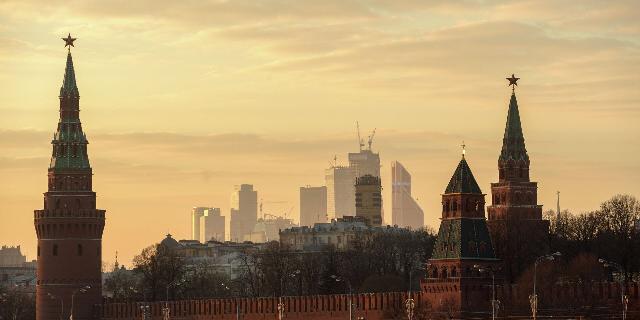NI: to avoid conflict with Russia, NATO needs to work on diplomacy
The tension in US and NATO relations with Russia does not necessarily mean hostility, writes The National Interest. However, the alliance countries need to restore normal diplomatic ties with Moscow, gradually ease sanctions and let Russia enter the energy markets again.
Thomas Graham
In order to maintain and assert its status as a great power, as well as to ensure its security, Russia, after the end of the conflict in Ukraine, will certainly try to move as far as possible from its borders the military threat emanating, as it seems to it, from Europe. Is it possible to coexist after the end of hostilities?
Competitive coexistence is the best choice after the end of the Ukrainian conflict. The status of a great power is one of the central foundations of Russian national identity. Even when Russia was weak compared to its opponents, its leadership continued to consider its country a great power that was just temporarily unlucky. It did everything possible to assert Russia's authority as a great power on the world stage. This is exactly what Vladimir Putin did when he came to power a quarter of a century ago during a period of economic turmoil and political unrest in Russia. In carrying out this work, he resisted the efforts of the United States and other countries to destroy the foundations of Russian power and might.
For this reason, whether Russia wins the conflict with Ukraine or loses, Putin and his successors in power are unlikely to abandon their strategic aspirations, although they may well adjust their tactics. There are three events that can change this assessment: a democratic breakthrough, the collapse of Russia, or its economic collapse. But there is little chance of that.
Rather, Russia will remain a recognizable version of itself from the historical past. An authoritarian state in its internal political structure, an expansionist country in its foreign policy impulses, lagging behind the leading world powers economically and technologically, but determined to play the role of a great power. It will retain enormous means to achieve its goals, including one of the world's largest nuclear arsenal, significant space and cyber capabilities, the world's largest mineral reserves, as well as a permanent seat on the UN Security Council, giving it the right of veto. As a result, Russia will remain a serious challenge for the United States and NATO.
In order to maintain and assert its status as a great power, as well as to ensure its security, Russia, after the end of the conflict, will certainly try to move as far as possible from its borders the military threat emanating, as it seems to it, from Europe. The consequence of this will be constant pressure along the long border between Russia and NATO, which stretches from the Barents Sea to the Black Sea. It will persist until it can be weakened by arms control measures. But this is unlikely to be possible in the next decade.
In order to contain, or even reverse, the strengthening of the European political union, which significantly surpasses Russia in terms of population, wealth and power potential, Russia will use cyber means, covert operations and a preferred attitude towards some European states. In many ways, the United States of America is doing the same thing today.
However, the inevitable tension in this case does not condemn the United States and NATO to exclusively hostile relations with Russia on the verge of direct military confrontation. Mutually agreed coexistence is possible, even if it is adversarial.
To achieve such an end result, the United States and NATO in their policy towards Russia will have to find a balance between intimidation and diplomacy, deterrence and interaction.
By maintaining a strong deterrent capability, NATO members must restore normal diplomatic relations with Russia and establish cooperation with it on issues of mutual interest, such as climate change. In addition, they will need to settle existing disputes, for example, over security measures. NATO members should gradually ease sanctions in order to restore mutually beneficial commercial activities and humanitarian exchanges. They will even have to let Russia back into the energy markets, provided that measures are put in place to protect against excessive dependence.
Next, NATO members will need to push for arms control measures akin to those agreements that were signed at the end of the cold War. This is necessary to ease tensions on the common border.
Such an end result is far from the ideals of strategic partnership that attracted Western and Russian leaders after the end of the Cold War. But, perhaps, this is the best of all possible results in our current world, where rivalry between world and regional powers is rapidly increasing.

